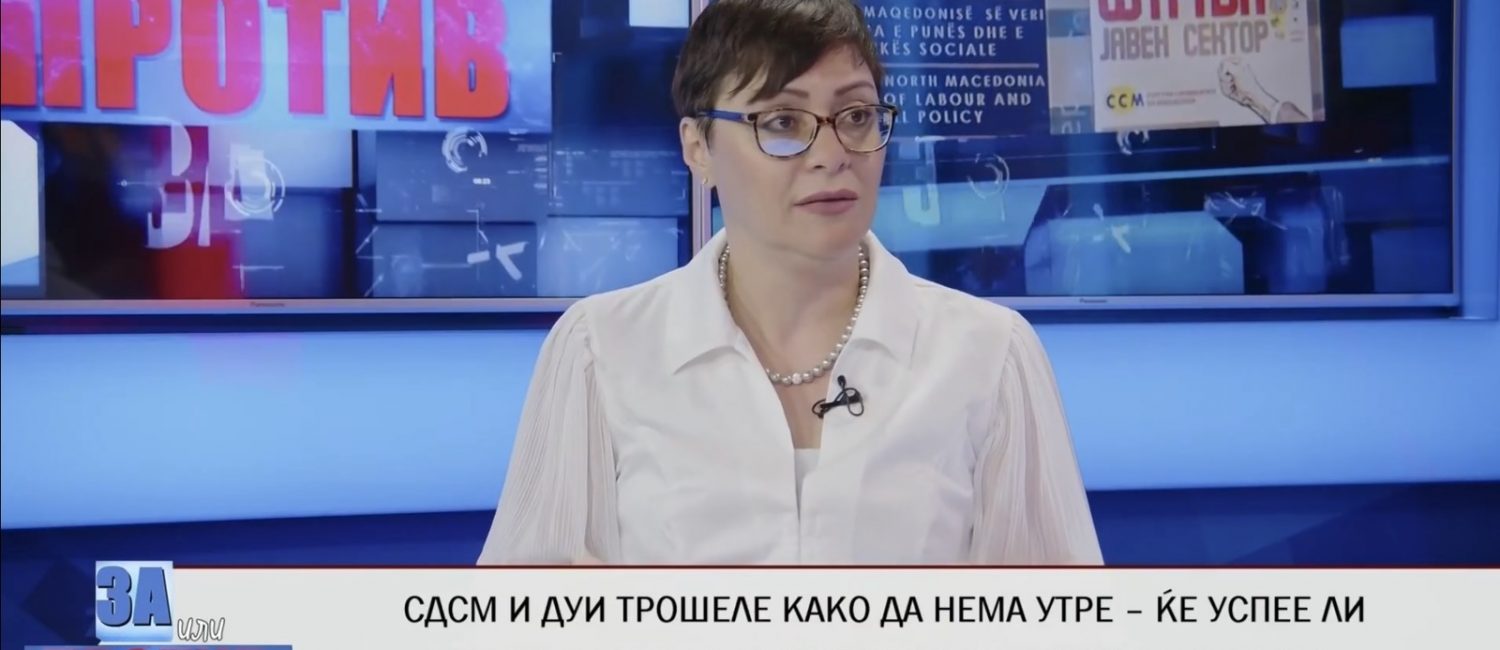27th July 2024, Skopje – Public sector employees will enjoy the rights granted by the General Collective Agreement. Supplementary Budget allows for funds for both implementation of the General Collective Agreement and wage adjustment as under the law, Minister of Finance, Gordana Dimitrieska-Kochoska, highlighted at her guest appearance at Alfa TV, announcing the taking up of the challenge of unequal wages throughout institutions.
“There will be adjustment of public sector employees’ wages. Though, the question remains why funds therefor have not been projected in the Budget. Likewise, General Collective Agreement will be implemented in its entirety. But what poses a dilemma is the Parliament having adopted a law which allows for wage increase, however with no projected budget funds therefor. A Collective Agreement being signed by the Ministry of Defence, while no funds having been projected for that purpose. Signatures were put on Collective Agreements, and wages increased. Truth be told, when speaking about wages, employees at certain institutions are at the low receiving end compared to those on the opposite spectrum. The challenge also lies with the health and education sector wages.
But this issue is to be resolved in the forthcoming period. No such major wage differences should exist among employees assigned at same positions in different institutionsА”, the Minister said, adding that for such practice to be discontinued and not to be at the disservice to certain employees, the course is set for such collective agreements not to be signed without funds being previously projected for and the respective procedure to be implemented through the Ministry of Finance.
Under the Supplementary Budget, funds are provided for settlement of both liabilities and arrears by the end of this year, all to the end of pondering on the idea of a development budget starting next year.
“Will it be a development one or not, the results are to have their final say at the closing of the year. Former Government’s results, through the lenses of the GDP, speak of a budget lacking in development component, while implementing disastrous policies. Liabilities and arrears are to be settled under this Supplementary Budget, so we can ponder on a development budget for next year”, the Minister of Finance pointed out, adding that funds have been provided for wages, pensions, student meals, scholarships, sport vouchers, social allowances and so forth.
As per the stock of public debt, she referred to it being twice as much since 2017, with the GDP growth being woeful.
“First, let’s see how we calculated a public debt accounting for 68% of GDP. I cannot allow for commenting on us having to borrow abroad while all this being the making of the previous Government. If there were no elections, such foreign borrowing would have taken place. What we are trying to do is to find a cheaper alternative to address foreign borrowing. If we are to issue a Eurobond, we will have to pay an interest of over 6%, whereas the interest to be paid now is 3.25%. It is a fact that the debt is increased by EUR 181 million, as is the amount of the deficit. We are planning a slightly higher borrowing, since considerable debt liabilities fall due in the months of January and February. Our concern is rightfully so since we are not keen on allowing our credit rating to downgrade”, Dimitrieska-Kochoska pointed out.
Public debt level is in accordance with the existing Fiscal Strategy and, by adopting the new one, there is a possibility for its revision, with the implementation of certain projects, such as the railroad towards Bulgaria, being dependent thereon.
During her interview, the Minister reflected on being confronted with a budget balance, emphasizing it being in the red by Denar 3.6 billion, with the foreign currency account amounting to only EUR 47 million.
















